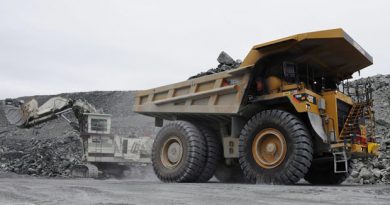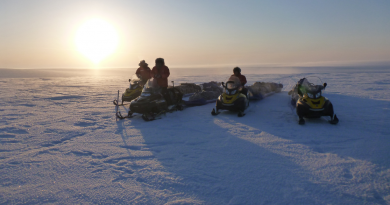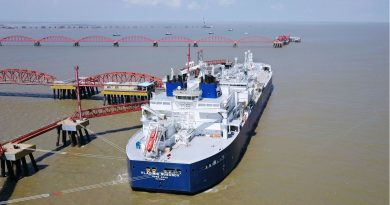The longer Ukraine conflict lasts, the bigger the implications for the Arctic: paper
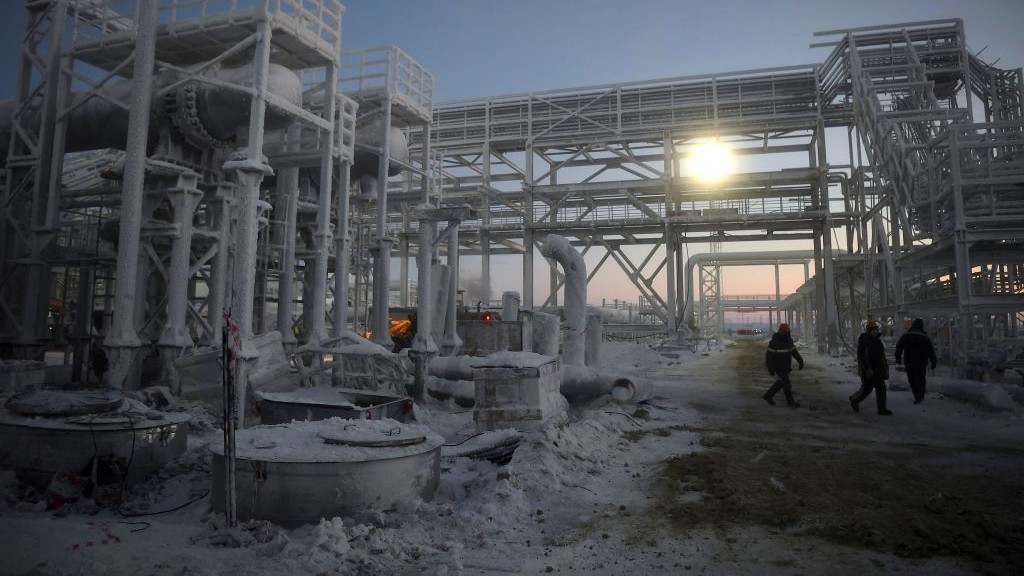
The ongoing conflict in Ukraine has had far-reaching consequences, including in the North, and a recent paper in the Journal of Strategic Studies urges the international community to pay more attention to impacts on the Arctic in discussion of the conflict.
“The two circumstantial Chinese and Russian partners no longer seem to want to comply with a model of UN governance deemed too favorable to Western democracies,” authors Frédéric Lasserre, a professor in the Department of Geography at Laval University, and Hervé Baudu, a professor at France’s École nationale supérieure maritime (ENSM), the French National Maritime Academy; and Frédéric Lasserre, said in the paper “The consequences of the war in Ukraine in the Arctic.”
“Thus, the Arctic, hitherto relatively preserved, could become an area of political struggle between the great powers, of which we know for certain that Russia will do everything to impose itself; its resources in the Arctic being a source of considerable income for decades to come, justifying its determination to oppose the Western powers.”
Russia invaded Ukraine on February 24, 2022. The seven western states on the Arctic Council, often referred to as the Arctic 7, suspended their participation in the body’s work in March in protest saying the war undermined many of the founding principles of the Arctic forum, which include sovereignty and territorial integrity based on international law.
Arctic cooperation strained
In June, the A7 announced they’d resume work together on some of the forum’s projects, but without Moscow.
The invasion came at the time that Russia holds the Arctic Council’s two-year rotating chairmanship.
Norway will be taking over the chairmanship from Russia in May.
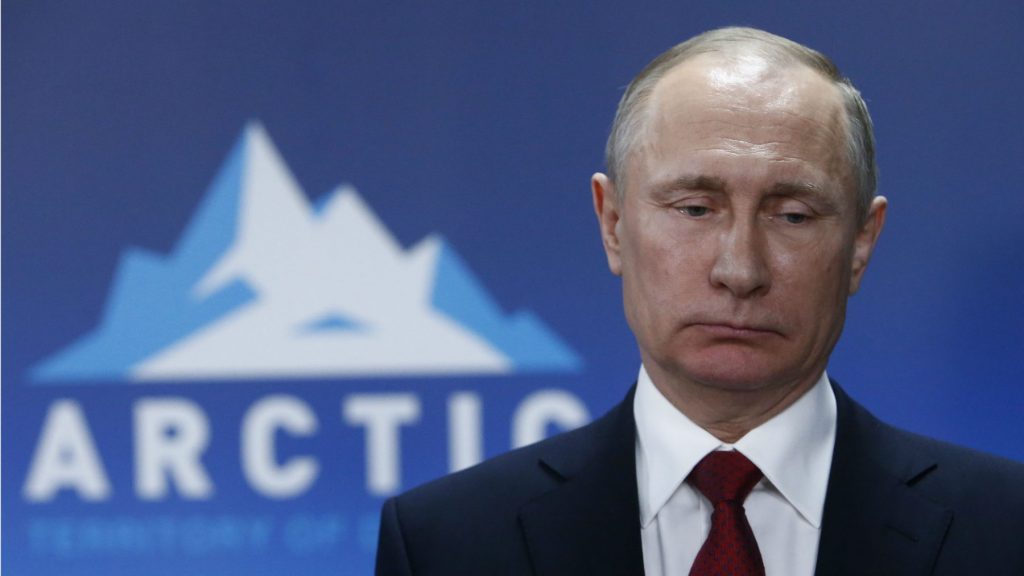
In the paper, the authors say the continuing break between Arctic nations poses increasing problems for the North, given the huge challenges the region faces due to factors like climate change.
“With the freezing of exchanges within the Arctic Council, one could fear that Russia would cease to align itself with the progress necessary for the sustainable preservation of the environment of the Arctic Ocean, which is already very impacted by global warming.”
Russian President Vladimir Putin has made Arctic development a top priority in recent years, both in terms of resource projects and development of the Northern Sea Route.
Energy projects behind schedule
The raft of western sanctions following Moscow’s invasion of Ukraine has destabilized much of these plans.
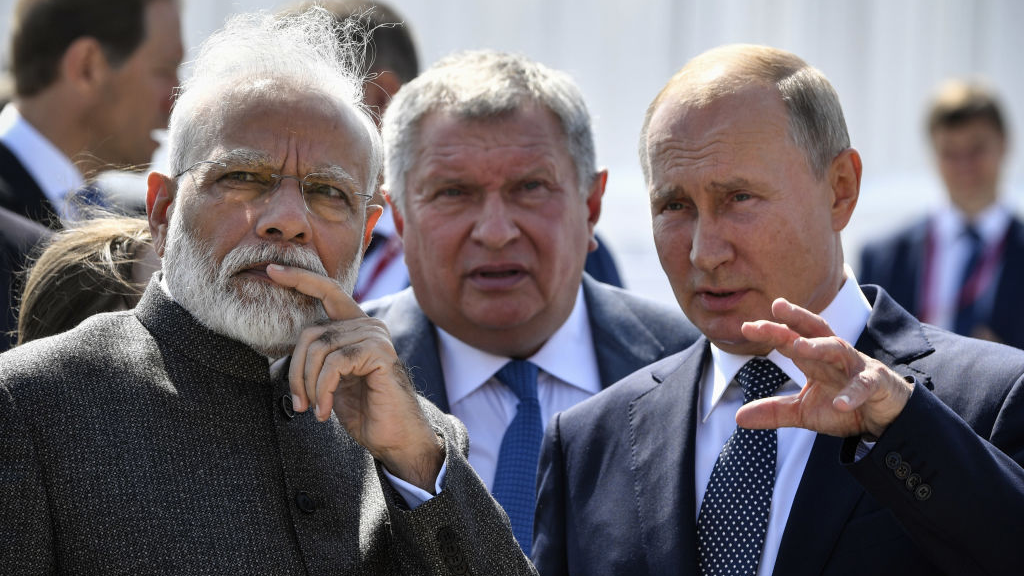
Arctic LNG2, Sakhalin 2 and Ob LNG are four of main projects experiencing setbacks, says the paper, and are not expected to reach their production capacities.
Novatek’s Arctic LNG2 in particular struggled without western technologies including American Baker Hughes turbines, Linde heat exchangers and German Siemens Compressors.
“Industry experts remain very skeptical about Russia’s ability to produce turbines equivalent to American ones and to provide alternative floating electricity production with conventional barges moored in an ice-covered port in winter,” the paper says.
Russia is seeking technology elsewhere and the paper’s authors say it remains to be seen how Moscow navigates its technical challenges going ahead, and which countries it chooses to align with.
“While we have seen the direct consequences of Western sanctions on the Arctic space, we can wonder about the future of this region if the war with Ukraine drags on and relations harden between Westerners and Russia,” the paper says.
Related stories from around the North:
Canada: U.S. report claims Trudeau told NATO Canada will never meet military spending target, CBC News
China: Satellite imagery reveals construction progress on new Chinese Antarctic base, Eye on the Arctic
Finland: Russian cyber attacks, espionage pose growing threat to Finnish national security, Yle news
Greenland: Growing focus on Arctic puts Greenland at higher risk of cyber attacks: assessment, Eye on the Arctic
Iceland: Iceland authorizes U.S. submarine service visits, Eye on the Arct
Norway: Expelled ‘diplomats’ left Norway via Kirkenes and Istanbul, The Independent Barents Observer
Russia: Russian Arctic rescue exercise attended by observers from Iran and Saudi Arabia, The Independent Barents Observer
Sweden: Russian spy ships surveying Nordic energy infrastructure, Radio Sweden
United States: U.S. nominates Alaskan as first Arctic ambassador, Eye on the Arctic

